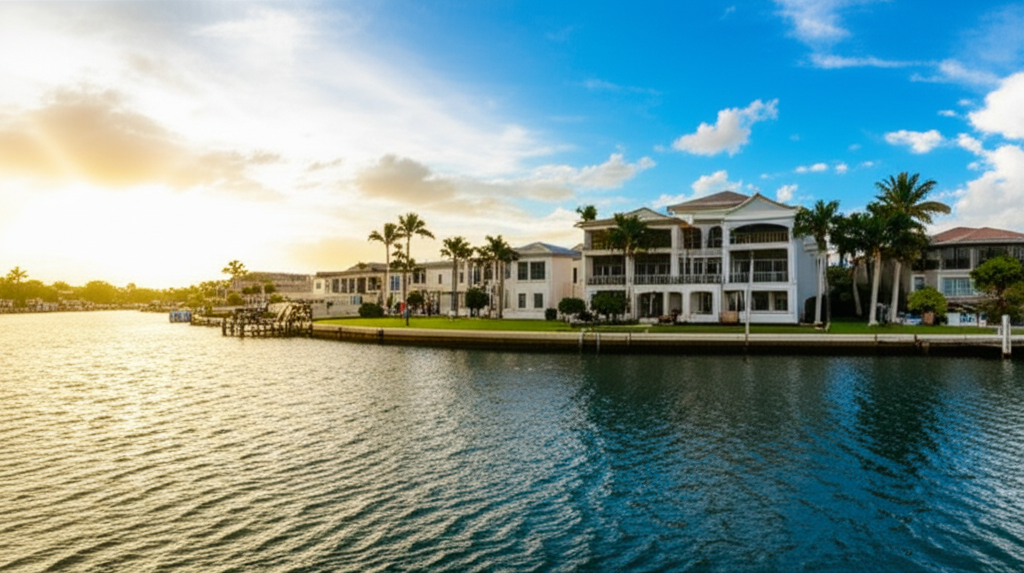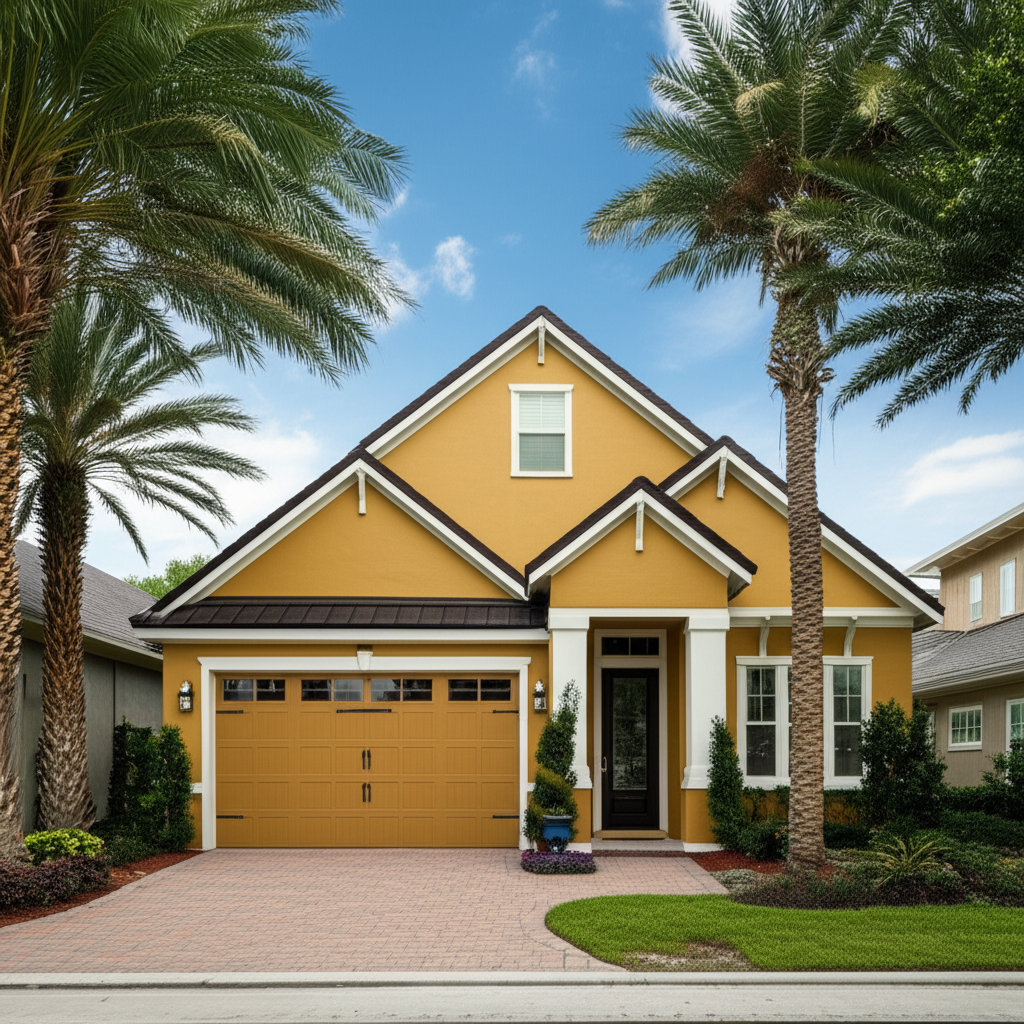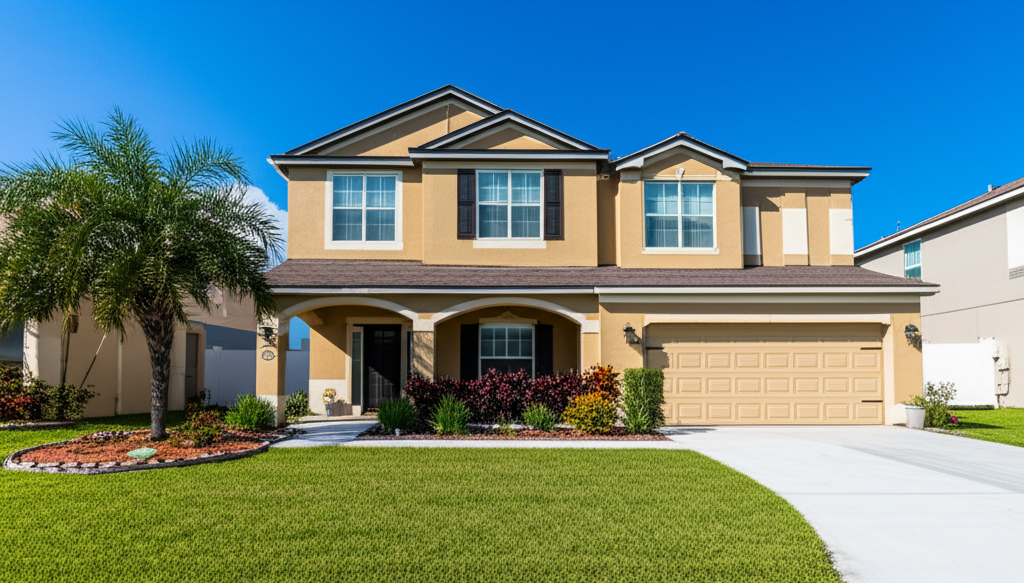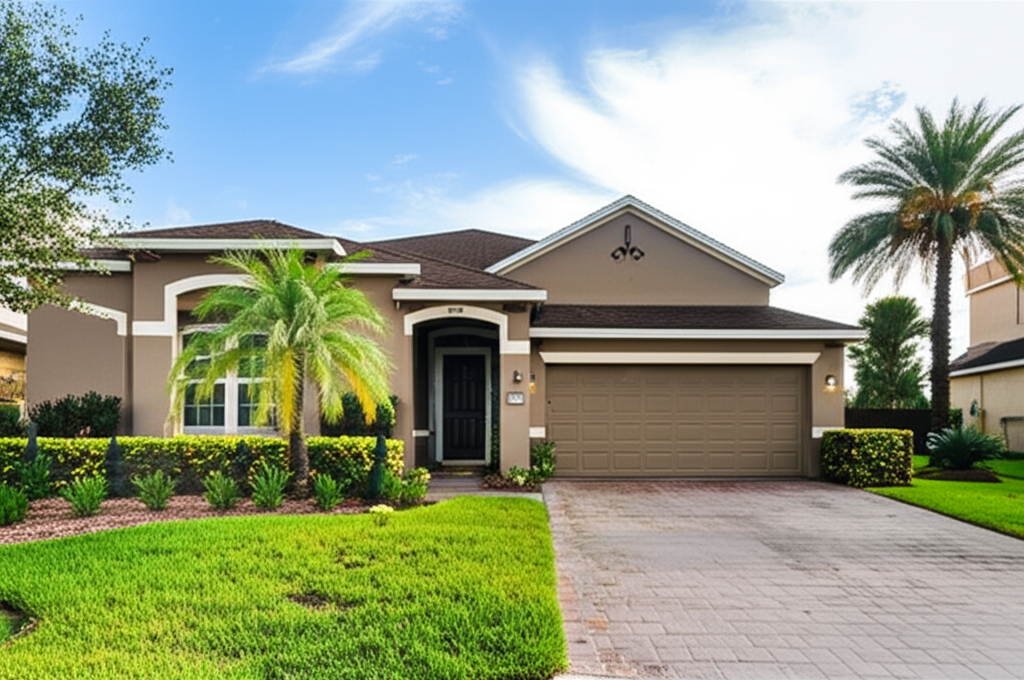Fort Myers
Sun-filled riverfront living, easy Gulf access, and a laid‑back lifestyle draw new residents and visitors to Fort Myers. The city blends historic charm with modern master‑planned communities, strong healthcare and education anchors, and year‑round outdoor recreation.
Quick Snapshot
| Category | At-a-Glance |
|---|---|
| Region | Southwest Florida; on the Caloosahatchee River between Naples and Port Charlotte |
| Vibe | Coastal and riverfront, family‑friendly, outdoorsy, historic core with modern suburban growth |
| Housing Mix | Single‑family homes, condos, and townhomes; established neighborhoods along McGregor Blvd and Whiskey Creek; newer master‑planned areas like Gateway |
| Commute | I‑75 and US‑41 are primary arteries; roughly 15–25 minutes to RSW airport from most neighborhoods, 15–30 minutes to Cape Coral via bridges, 30–50 minutes to Naples (traffic and season dependent) |
Why Move to Fort Myers
- Balanced lifestyle and value: a mix of historic riverfront charm and newer communities, with no state income tax and access to beaches, boating, golf, and festivals.
- Regional job access: growing healthcare, education, logistics, and professional services sectors anchored by Lee Health, Florida Gulf Coast University, Florida SouthWestern State College, the RSW airport corridor, and employers such as Chico’s FAS and NeoGenomics.
- Nature at your doorstep: quick drives to Sanibel, Captiva, and Fort Myers Beach, plus preserves like Six Mile Cypress Slough and miles of paddling on the Calusa Blueway.
- Community feel: active neighborhood associations, farmers markets, spring training baseball, riverfront events, and a revitalized downtown with galleries and music walks.
Neighborhoods & Entertainment Districts
Fort Myers centers on the Caloosahatchee River with a historic downtown, leafy older neighborhoods, and east‑side master‑planned communities close to I‑75 and the airport. The city’s “River District” is the cultural hub, while daily living often orbits convenient mixed‑use centers such as Gulf Coast Town Center and Bell Tower.
- Downtown River District — Walkable historic core with brick streets, restaurants, galleries, monthly ArtWalk and Music Walk, and riverfront parks. Condos over shops and nearby mid‑rise buildings suit professionals, seasonal residents, and those who prefer an urban vibe.
- McGregor Boulevard & Edison Park — Iconic royal palms, 1920s–1960s homes, and proximity to the Edison & Ford Winter Estates. Character properties and established streetscapes appeal to buyers seeking charm and quick access to downtown and the river.
- Whiskey Creek & Cypress Lake — Central, suburban neighborhoods with mid‑century and newer homes, golf options, and convenient shopping. A good fit for families wanting space and access to schools without a long commute.
- Gateway — East of I‑75 near RSW, this master‑planned area offers newer single‑family homes, townhomes, parks, and community pools. Popular with professionals, frequent flyers, and families who value newer builds and amenities.
- South Fort Myers (Gulf Harbour, HealthPark area) — Gated and golf communities, some with marina and club options, plus quick access to beaches via Summerlin Road. Suits buyers prioritizing resort‑style amenities and lock‑and‑leave convenience.
- Bell Tower & US‑41 Corridor — Retail and dining spine with theaters and big‑box conveniences; surrounding neighborhoods span older ranch homes to newer townhomes.
Schools & Education
Fort Myers is served by the School District of Lee County, which uses a proximity‑based school choice system rather than strict neighborhood zoning. Families can rank options, and the district offers magnet and specialty programs across the arts, IB, STEM, and career/technical tracks. Nearby higher education includes Florida Gulf Coast University (Estero), Florida SouthWestern State College (Fort Myers), and Hodges University (Fort Myers/Naples).
| Level | Examples | Notes |
|---|---|---|
| Elementary | Edison Park Creative & Expressive Arts School; Littleton Elementary; multiple neighborhood elementary schools | Magnet arts and academic options; programs vary by campus and zone. |
| Middle | Cypress Lake Middle; Fort Myers Middle Academy; Dunbar Middle | Access to arts integration, STEM electives, and preparatory tracks for IB/AICE. |
| High | Fort Myers High School; Cypress Lake High School (Center for the Arts); Dunbar High School; Riverdale High | IB and AP at Fort Myers High; arts conservatory programs at Cypress Lake; STEM and technology certifications at Dunbar; varied athletics across campuses. |
Private and charter options include Bishop Verot Catholic High School and several K–8 academies; availability and admissions vary. Proximity to FGCU and FSW supports dual‑enrollment and workforce pathways.
Note: School options and performance can vary by attendance zone; buyers should verify current zoning and ratings.
Cost of Living & Housing
Fort Myers is generally more affordable than Naples and many coastal metros, with a range of price points from established neighborhoods to new construction. Waterfront and new, amenity‑rich communities command premiums. Property insurance and HOA/condo fees are important budget considerations in Florida, and costs can vary block by block depending on flood elevation, building age, and amenities.
| Item | Typical Range | Context |
|---|---|---|
| Single-Family Home | $350,000 – $800,000+ | Smaller resale homes inland on the lower end; newer builds and river/golf communities higher; waterfront and luxury listings can exceed seven figures. |
| Townhome/Condo | $220,000 – $550,000+ | In-town condos and older garden complexes are often more attainable; high‑amenity buildings and water views cost more; HOA/condo fees vary widely. |
| Rent (2–3 BR) | $2,000 – $3,200/mo | Newer communities and riverfront/water‑proximate areas trend higher; inland locations and older buildings lower. |
| Overall Costs | On‑par to slightly below some nearby coastal metros | Utilities are typical for Florida; transportation is car‑centric; homeowners insurance and flood coverage can materially affect monthly costs. |
Insurance & HOA note: In Florida, homeowners insurance and HOA/condo fees can materially affect monthly costs; obtain current quotes.
Outdoors, Activities & Lifestyle
Fort Myers lives outdoors. The city’s riverfront parks, preserves, and beach access encourage year‑round activity, while a steady calendar of arts events and baseball keeps things lively. Post‑hurricane recovery continues along parts of the barrier islands, but beaches and boating remain central to local life.
- Edison & Ford Winter Estates — Historic homes, botanical gardens, and a museum along McGregor Boulevard.
- Six Mile Cypress Slough Preserve — Boardwalk trails through a cypress wetland with birding and wildlife viewing.
- Lakes Park — Family‑friendly lakes, trails, playgrounds, and weekend farmers market.
- Calusa Blueway Paddling Trail — Hundreds of miles of marked kayak routes through mangroves and coastal backwaters.
- JetBlue Park & Hammond Stadium — Spring training homes of the Boston Red Sox and Minnesota Twins; summer features the Minor League Fort Myers Mighty Mussels.
- Downtown festivals — ArtFest Fort Myers, the Edison Festival of Light parade and 5K, monthly ArtWalk and Music Walk in the River District.
- Beaches & boating — Charter fishing on the Gulf, shelling on Sanibel and Captiva, and family days at Fort Myers Beach (check current access and amenities as recovery progresses).
Getting Around & Commute
I‑75 and US‑41 (Tamiami Trail) are the main north‑south routes, with Summerlin Road providing beach access from South Fort Myers. The Cape Coral Bridge and Midpoint Bridge connect to Cape Coral. Southwest Florida International Airport (RSW) sits about 10–20 miles from most neighborhoods, with frequent domestic flights and seasonal international service. Local buses are operated by LeeTran, but most residents drive; cycling and walking are practical within the River District and certain master‑planned communities. Typical non‑rush trips are 10–30 minutes within the city; commute times increase in winter season when visitor traffic peaks.
Who It’s Ideal For
- Growing families seeking suburban space, parks, and access to magnet and IB/arts programs.
- Professionals who want newer homes, amenities, and fast airport and interstate access.
- Retirees prioritizing low‑maintenance living, golf, boating, and cultural events.
- Second‑home buyers looking for lock‑and‑leave condos near downtown or the beach corridors.
Tips for Homebuyers
- Timing and inventory: New listings often cluster before and after peak winter season; get pre‑approved and be ready to act on well‑located properties.
- New vs. resale: New construction offers wind‑resistant features and builder warranties; established areas provide larger lots and mature trees—budget for updates.
- HOA/condo due diligence: Review budgets, reserves, and rules; understand amenity fees and any special assessments, especially in older buildings.
- Flood & wind: Check FEMA flood maps, elevation certificates, and wind‑mitigation reports; stronger roofs, shutters, and impact windows can lower insurance.
- Commute check: Drive your route at rush hour and in peak season; beach‑bound corridors and bridges slow considerably in winter.
FAQ
Is Fort Myers a good place to raise a family?
Many families choose Fort Myers for its parks, sports leagues, and access to magnet and IB/arts programs within the Lee County school system. Neighborhood character varies—from quiet cul‑de‑sacs to walkable downtown blocks—so it’s wise to tour at different times of day and confirm school options through the district’s choice system. Safety and amenities can differ by area; local data and on‑the‑ground visits are helpful.
How does the cost of living compare to nearby areas?
Overall costs are typically lower than Naples and some other Gulf Coast enclaves, while higher than more inland Florida markets. Housing spans budget‑friendly condos to luxury riverfront estates. Utilities and transportation are broadly in line with Florida norms; insurance and HOA/condo fees vary and should be verified during due diligence.
What’s the housing stock like?
Expect a blend of classic mid‑century homes, 1980s–2000s subdivisions, and a wave of newer construction east of I‑75 and in gated communities along Summerlin and McGregor corridors. Downtown offers mid‑rise condos and townhomes. Buyers focused on saltwater access will find canal and riverfront options, while those prioritizing amenities will see many golf and club communities.
Bottom Line
Fort Myers pairs riverfront charm and sunny weather with practical access to jobs, schools, and an international airport. Whether you want a historic bungalow under the palms, a new build near parks and pools, or a condo steps from restaurants and events, the city offers real variety. Add in year‑round outdoor recreation and regional beaches, and it’s clear why buyers and travelers are putting Fort Myers on their shortlist. As always, neighborhood‑level research and careful budgeting—especially for insurance and HOA costs—will help you find the right fit.




